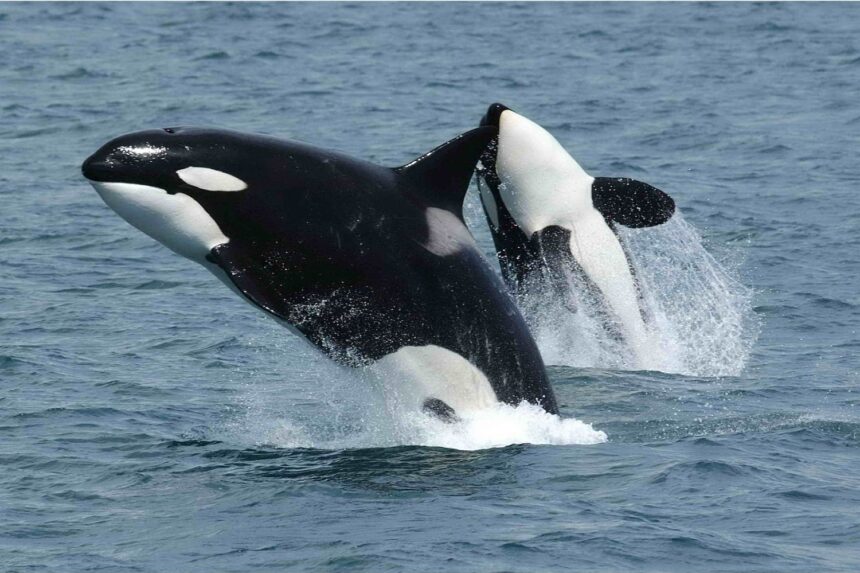Every summer, an area of deep underwater canyons off western Australia’s south coast called Bremer Canyon becomes the preferred feeding ground for marine predators including sharks, pilot whales, beaked whales, and the highly intelligent orcas. As such, Bremer Canyon has become a popular whale-watching destination. This week, a pod of orcas put on a gruesome show.
On Monday, tourists and researchers on a tour boat at Bremer Canyon witnessed a pod of over 60 orcas hunt and kill a roughly 59-foot-long (18-meter-long) pygmy blue whale, as reported by Australia’s ABC. The scene, caught on camera, was bloody, heartbreaking…and normal, despite our aching human hearts. In fact, it was also special, in a ruthless way: It’s only the fourth time orcas hunting a blue whale has been filmed at Bremer Canyon.
“The intense ordeal lasted less than 40 minutes from when we first saw the blue at the surface to when the battle was over. As the blue whale’s fate was sealed, orcas celebrated with breaches and tail slaps,” reads a social media post by Naturaliste Charters Whale Watching, after a stark graphic content warning. The event is “an extraordinary reminder of their role as apex predators in the ocean.”
Beyond the human instinct to root for the underdog—it was 60 against one—and our squeamishness for bloody waters, another heartbreaking aspect of the situation is that pygmy blue whales are endangered.
“We’re all still pretty shell shocked,” Jennah Tucker, a marine biologist who works on Naturaliste Charters and witnessed the hunt, told the ABC. “We definitely do as much as we can to not be involved and to have no interference, but it’s a very difficult thing to watch; it can be very brutal,” she admitted, adding that, at one point, almost 30 orcas overwhelmed the pygmy blue whale as it tried to flee.
“It was very emotional but that’s nature, it was quite a privilege to witness the event,” she continued. Tucker added that the researchers aboard the tourist boat identified five different orca family groups, and also noted the presence of many young orcas, including a one-month-old calf.
While popular culture abuses our fear of sharks, orcas are actually the world’s top marine predators and they roam every ocean. Despite being commonly known as “killer whales,” they’re a member of the dolphin family. In fact, the name “killer whale” comes, rather appropriately, from their whale hunting behavior.
Though it’s understandably difficult to witness such a bloody scene, the orcas weren’t engaging in senseless violence—they were behaving as nature intended them to.
Read the full article here












